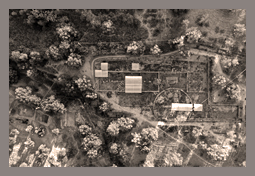Autori: M. Trümper, T. Lappi, A. Fino, C. Blasetti Fantauzzi
Scarica l’articolo in formato .pdf: The Gymnasium of Agrigento: Report of the First Excavation Campaign in 2022
 Il ginnasio di Agrigento è stato scavato tra gli anni ’50 del secolo scorso e il 2005. Sebbene siano state riconosciute una pista e una piscina tra due stenopoi, non è stato possibile determinare con sicurezza l’estensione del complesso e l’esistenza di una palaestra, né la data di costruzione. Un progetto avviato nel 2019 in collaborazione tra il Parco Archeologico e Paesaggistico Valle dei Templi di Agrigento e la Freie Universität di Berlino mira a rispondere a queste domande. Sulla base dei risultati di una prospezione geofisica, nel 2022 sono stati operati quattro saggi in un campo a Nord della piscina, dove probabilmente si trovava la palaestra. In questo articolo si presentano i risultati dei saggi della campagna del 2022, dopo una breve discussione sulla cronologia stabilita negli scavi precedenti. Nei saggi 1 e 2 sono emersi muri in blocchi di buona fattura, coerenti per orientamento, tecnica costruttiva e materiale con i muri del ginnasio e che potrebbero appartenere alla palaestra. Nel saggio 3 è apparsa la continuazione dello stenopos ovest. Il saggio 4, aperto in corrispondenza del presunto incrocio di questo stenopos con una plateia, non ha restituito testimonianze di strutture o pavimentazioni stradali. L’analisi dell’architettura ha evidenziato che le ricostruzioni precedentemente proposte presentano alcune criticità, in particolare per lo xystos, per il quale si propone qui una revisione della ricostruzione dell’ordine dorico e sua cronologia, suggerendo un periodo compreso tra la fine del III e la prima metà del II sec. a.C.
Il ginnasio di Agrigento è stato scavato tra gli anni ’50 del secolo scorso e il 2005. Sebbene siano state riconosciute una pista e una piscina tra due stenopoi, non è stato possibile determinare con sicurezza l’estensione del complesso e l’esistenza di una palaestra, né la data di costruzione. Un progetto avviato nel 2019 in collaborazione tra il Parco Archeologico e Paesaggistico Valle dei Templi di Agrigento e la Freie Universität di Berlino mira a rispondere a queste domande. Sulla base dei risultati di una prospezione geofisica, nel 2022 sono stati operati quattro saggi in un campo a Nord della piscina, dove probabilmente si trovava la palaestra. In questo articolo si presentano i risultati dei saggi della campagna del 2022, dopo una breve discussione sulla cronologia stabilita negli scavi precedenti. Nei saggi 1 e 2 sono emersi muri in blocchi di buona fattura, coerenti per orientamento, tecnica costruttiva e materiale con i muri del ginnasio e che potrebbero appartenere alla palaestra. Nel saggio 3 è apparsa la continuazione dello stenopos ovest. Il saggio 4, aperto in corrispondenza del presunto incrocio di questo stenopos con una plateia, non ha restituito testimonianze di strutture o pavimentazioni stradali. L’analisi dell’architettura ha evidenziato che le ricostruzioni precedentemente proposte presentano alcune criticità, in particolare per lo xystos, per il quale si propone qui una revisione della ricostruzione dell’ordine dorico e sua cronologia, suggerendo un periodo compreso tra la fine del III e la prima metà del II sec. a.C.
The gymnasium of Agrigento has been excavated between the 1950s and 2005. While parts of a race-track section and a pool were revealed between two stenopoi, the extension of the gymnasium and the existence of a palaestra as well as the construction date could not be securely determined. A project launched in 2019 in cooperation between the Parco Archeologico e Paesaggistico Valle dei Templi di Agrigento and the Freie Universität Berlin aims to solve these questions. Based on the results of a geophysical survey, four trenches were excavated in 2022 in a field to the north of the pool where the palaestra was most likely located. The aim of this paper is to discuss the results of the 2022 campaign. After a brief discussion of the chronology established in previous excavations, the trenches are presented from south (trench 1) to north (trench 4), followed by new insights regarding the architecture. In trenches 1 and 2, well-made ashlar walls were found that are consistent in orientation, building technique, and material with the previously exposed walls of the gymnasium and may have belonged to the searched palaestra. In trench 3, the continuation of the western stenopos appeared. Trench 4 was made at the supposed crossing of this stenopos with a plateia but did not yield any evidence of built structures or street pavements. The analysis of the architecture showed that previously proposed reconstructions are problematic, particularly regarding the architecture of the xystos–stoa. Revisions regarding the reconstruction of the Doric order and its chronology are proposed here, suggesting a period between the end of the 3rd and the first half of the 2nd century B.C.
